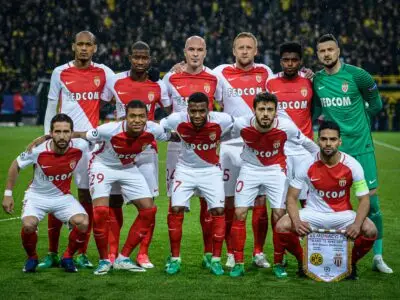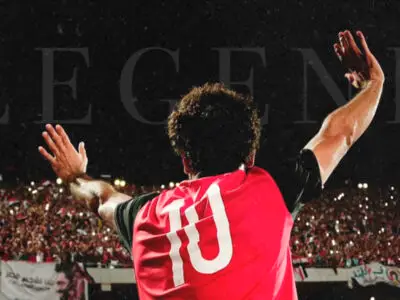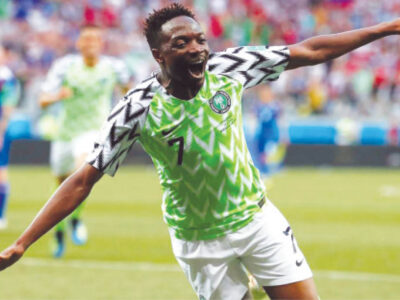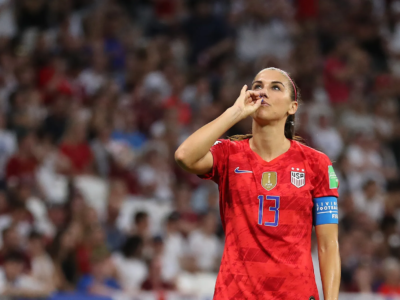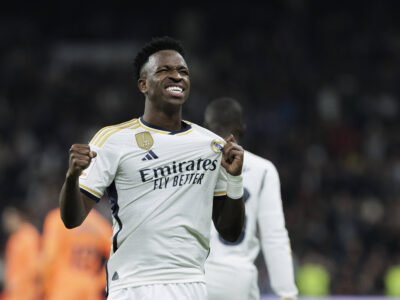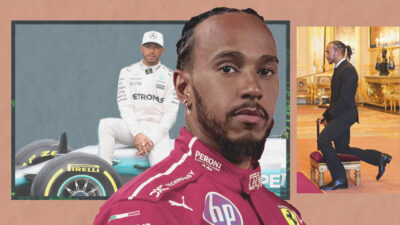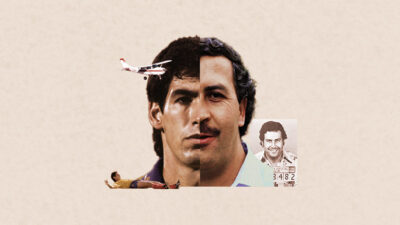Once a promising young English talent, Dele Alli became the butt of jokes and football banter after a poor run of form.
Things even got worse after Mourinho called him out on Tottenham’s “All or Nothing”. That clip sealed Dele’s reputation as the quintessential representation of a mercurial talent who let money and fame derail his career.
But all this changed after that Overlap interview with Gary Neville.
Seeing Dele Alli so vulnerable about his upbringing and mental health struggles put things into perspective. The interview served as a mirror to the football world—especially the banter community.
So where is the line between banter and toxic fan behaviour? Since discussing mental health is taboo in football, let’s talk about it.
The Brutal Nature of Football
The reductionist view of football sounds something like this: “It’s just 22 grown men getting paid millions to chase after a ball.”
On the surface, this is true. But when you peel away the layers of this onion, your eyes will water.
Let’s start from the very top with a fictional footballer named Alex Camacho.
Youth Football
As early as 8, young people from all over the country are picked and sent to academies to learn the trade. Alex ends up at Cobham with Chelsea FC.
While his mates are having fun in primary and secondary school, he is busy honing his craft in kicking, heading, or catching a football.
By the time Alex turns 14, football stops being fun. If he is half-decent, he will gain some notoriety within his age group. They’ll place him on a pedestal.
At the age of 16, football starts turning into a profession. That veneer of youthful innocence is gone. Alex is now Martin Odegaard.
Those same kids he used to have fun with at Cobham are now competitors. Dog eat dog; Alex must trample his closest mates on his way to stardom, to secure a life for his family.

Alex is now 17—time to represent his country at the youth stage. For the first time, he feels the pressure of carrying the hopes of a nation on his feeble shoulders.
Imagine heaping all that pressure on someone who doesn’t even have the constitutional right to vote or drink beer.
Transitioning into Professional Football
The first reality check comes at 18 when Alex Camacho realizes that only 1 out of 100 will make it to the big leagues. Maybe 3 out 10 might go pro and end up in lower leagues.
The rest will go back to “regular” life, nursing the eternal embarrassment of not being able to cut it when push came to shove. They’ll forever be cited as cautionary tales, etched into local folklore of what could have been.
Alex narrowly escapes. Now, he has a pro contract and is plunged into the limelight. Cameras and journalists follow every move.
Debut day comes, and googly-eyed Alex bursts onto the scene. He performs under pressure like Jude Bellingham. It’s time to enter the big leagues and start playing against fully-developed grown men.

And like that, Alex Camacho (49) has become a man—or something better: a name and number on an overpriced shirt. They must perform at 8.5/10 every week.
One month of bad form, and we are calling for them to be benched. Three months of bad form, and we are sending Alex off on loan to Shakhtar Donetsk.
Maybe he is no Marcus Rashford. Maybe he was just Kiko Macheda all along—a euphoric flash in the pan for the “streets will never forget” compilations.

All the while, no one ever talks about how this affects Alex Camacho, the boy. As far as we are concerned, number 49 is absolute trash.
How The Media Preys On Young Footballers
I’ll start with traditional tabloids and outlets like Talksport. Lazy journalism and clickbait titles drive their agenda against young millionaires.
Middle-aged ex-pros spend their mornings counting the pockets of strangers, making conjectures about why that new Ferrari is the reason they missed a sitter on Sunday
Sometimes, this comes from a place of jealousy; other times, it quacks of racism. Or maybe it is just an unfortunate case of the dehumanization of celebrities.
For some reason, we’ve collectively accepted that everyone we watch on TV every weekend does not deserve the same privacy and decency as regular folk.
The media combs through every last purchase, scrutinizes every new relationship and magnifies missteps. This tale is as old as time: It is that classic case of pumping people up so you can oversee their eventual collapse.
And that brings us to the even darker side of media.
The Football Cesspit on Social Media
If you think the media is bad, wait till you get to social media. At least, with legacy media, only a few talking heads have opinions.
With social media, every faceless troll now has a platform. Protected by the veil of anonymity, the vilest members of the human race bear out their frustration on players.
Some even go as far as levelling death threats on players. Others go as far as racially abusing them for messing up.
The three #ENG players who missed penalty kicks in the #EURO2020 final were targeted with racial abuse online. The FA says it's "appalled" in condemning the despicable acts of hatehttps://t.co/fPSIMxJOtR
— SI Soccer (@si_soccer) July 12, 2021
Yes, the game means a lot to you because you bet your inheritance on it, Esau, but don’t forget that it is another human being on the receiving end of your banter.
Look at the vitriol against Megan Rapinoe.
Imagine your country folk celebrating a loss because they know it will fuel hate toward you. Regardless of her political beliefs, she is still a human kicking a ball—and she has won two World Cups and an Olympic Gold for the USA.
We call it banter, ignoring the young people whom our jokes and memes batter.
Where Do We Draw the Line With Fan Banter?
Football fandom is the ultimate expression of human tribalism.
Your rival’s pain is your gain. A Tottenham fan would rather not qualify for the UCL than watch Arsenal win the league.
From this rivalry comes some top-tier banter. Meme pages operating at the speed of a Russian propaganda machine push out material for our collective consumption.
I must admit, some of them are very funny. But where do we draw the line?
Let’s explore the classic case of Harry Maguire.
Open any football fail compilation video today; chances are Maguire will be the thumbnail. If you don’t have Maguire in the compilation, someone will comment that you missed the GOAT— and the comment will get a lot of likes.
At this point, Harry Maguire is no longer a meme; he is now a soundbite. Football fans shrug and giggle when they hear the name. Rival fans applaud him when he comes on.

But we are missing a key factor: How does Harry Maguire feel about this?
Walk in his shoes for a bit. Every day, you log into your socials to see over 1000 mentions of people telling you how crap you are.
Imagine falling from grace and the whole world is laughing at you. All sports meme pages — and there are millions of them — focus on the most embarrassing moments of your life.
How are you supposed to perform to the best of your abilities? How are you supposed to love the game?
Are Players to Blame?
For the sake of fairness, some players believe in their own hype a little too much. They forget that they are earning a living from a professional hobby.
They flaunt their wealth and act like they levitate above the rest of us. I’d probably do the same if I got paid millions to kick ball.
So, when fans see Jesse Lingard and Paul Pogba dancing on Instagram after a loss, or Delle Alli attending at a high-fashion event after stinking up the park, their ability to sympathize erodes faster than a star trail.
And when the player’s performance dips after these off-the-field shenanigans, cupping your ears after scoring against Andorra will not endear you to fans.
When footballers delve into politics, they risk alienating one-half of the supporters just like Rapinoe polarized the US.
Weird coming from a man
— Anthony (@Antman0528) August 23, 2023
Megan Rapinoe claims there is 'huge backlash against women' in the US https://t.co/zdZ8AtbFRK
Okay, but should players just shut and dribble?
Absolutely not! Politics is now part of the game; it has always been. I can’t stand in solidarity with Zinchenko and scoff at Hamza Choudhury for supporting Palestine.
Players can use their platform to bring light to things that matter to them—as long as they’ve educated themselves on the topic. Marcus Rashford can do whatever he wants in politics as long as kids get fed.
How Players Can Change the Game
No wonder Dele Alli has been going from club to club. No wonder Harry Maguire looks dejected.
The unfortunate thing is that individual players cannot fight against the mob while struggling with their mental health.
But the only path forward is by speaking out.
Ever since Dele Alli opened up about his mental health, all the memes about his poor fashion choices and terrible on-field displays disappeared.
This tells me that behind all that mean-spirited banter, most people still have some decency. Yes, you’ll still find some edge lords reaching beneath the depths of gutters for cheap humour.
For those players who want to keep their mental health struggles private, I hope you are getting the counselling you need.
Forget social media; it’s not the real world. Be like Rodri. Ignore the trolls because they feed off the attention.
Surround yourself with people you love and people who love you. After all, they’re the ones going to enjoy your millions, not some wasteman from Kinshasa.
How Footballing Bodies Can Help
Football has to protect its most valuable assets—the players. Clubs should stop treating these young people as money-printing machines to be discarded when they stop producing. It is a cutthroat business, but these are still people.
At the bare minimum, every club should have counselling for young footballers. Initiatives should be in place to address players going through slumps instead of shipping them out on loan across the continent.

With the current influx of money in football, the meme factory is now working overtime with Project Mbappe and Project Saudi.
It’s all fun and games, but I am worried about a new generation of Alex Camachos coerced into the game by helicopter parents who use their kids as lottery tickets.
Youth players should receive additional life skills because only a handful of them can make it. So if their career doesn’t pan out, they can fall back on actual skills instead of roaming the streets to recapture that buzz.
I hope it doesn’t take a tragic case like Justin Fashanu or Encke to force footballing federations into action.
Who wrote this?
Ugo is a sports enthusiast with an undying love for underdog stories.












